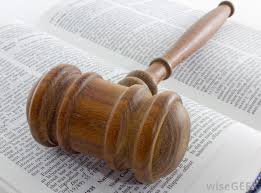Wonga-style fake letters means headaches for in-house lawyers

After Wonga and others were caught sending fake legal letters, what are the professional risk implications for in-house lawyers of using pseudo-solicitors to chase debts?
The profession needs to grapple with serious legal and ethical issues following recent reports of some retail lenders and banks using pseudo law firms to chase consumers for outstanding debt. But has this debacle uncovered a hitherto unrecognised pressure on the in-house role?
We know that Section 21 of the Solicitors Act 1974 makes it an offence for an unqualified person to pretend to be a solicitor, so sending a letter purporting to be from a “law firm” could well constitute an offence. But the point is potentially far more serious for anyone found guilty of misconduct, whether or not they are a qualified solicitor. As Law Society Chief Exec Desmond Hudson recently said, the scenario coming to light potentially involves very serious criminal offences including blackmail.
Recent reports have suggested that the pseudo-firms used by a number of the banks concerned were simply trading names used by their in-house legal teams and that qualified lawyers were, in fact, involved.
However, if the correspondence was intended to give the false impression that it was written by an independent firm, then that would be problematic for those concerned – qualified or not.
If the letters were coming from unqualified individuals then their authors may, among other things, be criminally liable under the Solicitors Act. Equally if the letters were written by in-house solicitors, then those individuals will certainly arouse the wrath of the SRA if it considered that the letters were intended to be unduly threatening or misleading.
The SRA is alive to these issues and has recently issued a warning notice aimed at in-house solicitors reiterating key parts of the publicity code and expressing grave concern at the possibility of in-house solicitors having taken unfair advantage of unrepresented consumers. It is likely that the regulator will be investigating in some detail over the coming weeks, no doubt in conjunction with the Financial Conduct Authority and the police.
In response to the news reports, a number of eminent in-house lawyers have argued that in today’s difficult climate there is sometimes immense pressure on in-house solicitors to be ‘yes men’ so that their professionalism may be compromised for fear of losing their jobs.
Clearly all solicitors, including those in-house, have regulatory duties including to maintain public confidence in the profession and to act in the best interests of their clients. The public confidence issues for the profession are clear.
Although on first sight perhaps less clear, it is difficult to see how an in-house solicitor could be acting in the best interests of their client (that is, their employer) if they permit themselves and their client to be exposed to regulatory, civil or potentially criminal liability by concocting, authorising or acquiescing in schemes such as those that have recently come to light.
In light of these cases, the regulator will need to give clear and specific guidance for in-house solicitors who may be regularly caught between their own ethical responsibilities as solicitors on the one hand, and on the other hand the commercial, volatile and sometimes highly unscrupulous world in which some are employed.
If the profession is unable grapple with these issues, then there is likely to be pressure for in-house solicitors to be regulated distinctly from those in private practice.
Robert Crossingham, professional risk partner, Weightmans
Source: thelawyer





























